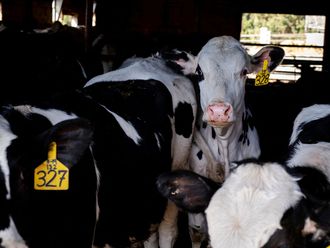Washington/Columbus, Ohio: A Somali immigrant who injured 11 people at Ohio State University in a vehicle and stabbing attack before he was shot dead may have followed the same path to self-radicalisation as militants in a number of “lone wolf” attacks, US officials said on Tuesday.
Abdul Razzaq Ali Artan, 20, was shot dead by a police officer on Monday moments after he ploughed his car into a crowd of pedestrians and then leapt out and began stabbing people with a butcher knife.
Investigators were probing the background of Artan, a Muslim who was a lawful permanent resident of the United States and a student at Ohio State.
Authorities have given no direct motive for the attack on the Columbus campus. US Representative Adam Schiff, the ranking Democrat on the House of Representatives Permanent Select Committee on Intelligence, said Artan appeared to have been influenced by material on the internet.
“It appears that the attacker was radicalised online by jihadist propaganda,” he said in a statement.
Schiff said no evidence has been uncovered showing that Artan communicated with or was directed by overseas militant groups. It was unclear what prompted Artan’s family to immigrate to the United States or if his time outside the United States played a part in his decision to launch the attack, Schiff said.
Daesh militant group claimed responsibility on Tuesday for the attack. But a federal official who asked not to be identified said investigators have seen no evidence so far that the militant group’s role was anything more than inspirational.
Artan’s actions fit the pattern of lone-wolf militants who carried out other attacks, such as the gunman who shot to death 49 people at a nightclub in Orlando, Florida, in June, and the man who killed four US Marines and a Navy sailor in a shooting in Chattanooga, Tennessee, last year, the officials said.
Those gunmen were also killed by police.
Investigators were looking into a message posted on Facebook by Artan with inflammatory statements about being “sick and tired” of seeing Muslims killed, a law enforcement source said.
“Stop the killing of the Muslims in Burma,” Artan said in the Facebook post.
Violence in Myanmar, which is also known as Burma, has sent Rohingya Muslims fleeing across the border to Bangladesh amid allegations of abuses by security forces.
All of Artan’s Facebook postings have been removed from the social media website.
Artan’s post did not mention Daes, but it praised Anwar Al Awlaki, a US-born radical cleric linked to Al Qaida who was killed by a US drone strike in 2011.
Artan, who was born in Somalia, arrived in the United States in 2014, said a federal official, who asked not to be identified because of the ongoing investigation.
Members of Columbus’ Somali community have denounced the attack by Artan.
Investigators believe Artan may have lived as long as seven years in Pakistan, said the federal official. Somali refugees often spend some time in Pakistan before coming to the United States.
More recently, Artan worked at a Home Depot store in Columbus, a US law enforcement official said.
The attack rattled students at the state’s flagship public university.
One victim remained hospitalised on Tuesday at Ohio State University Wexner Medical Center, Dr Andrew Thomas, chief medical officer at the facility, said at a news conference. Two others were at Riverside Methodist Hospital. No victims have life-threatening injuries.
William Clark, a professor emeritus who was struck by Artan’s car, told reporters after his release from the hospital that he would withhold judgement about Artan until he learns more about what motivated him.
“I’m sore, but I’m going home this afternoon and he’s dead,” Clark said. “My sense is, out of respect for just the living and the dead, that we should wait until we know exactly what the truth is.”












